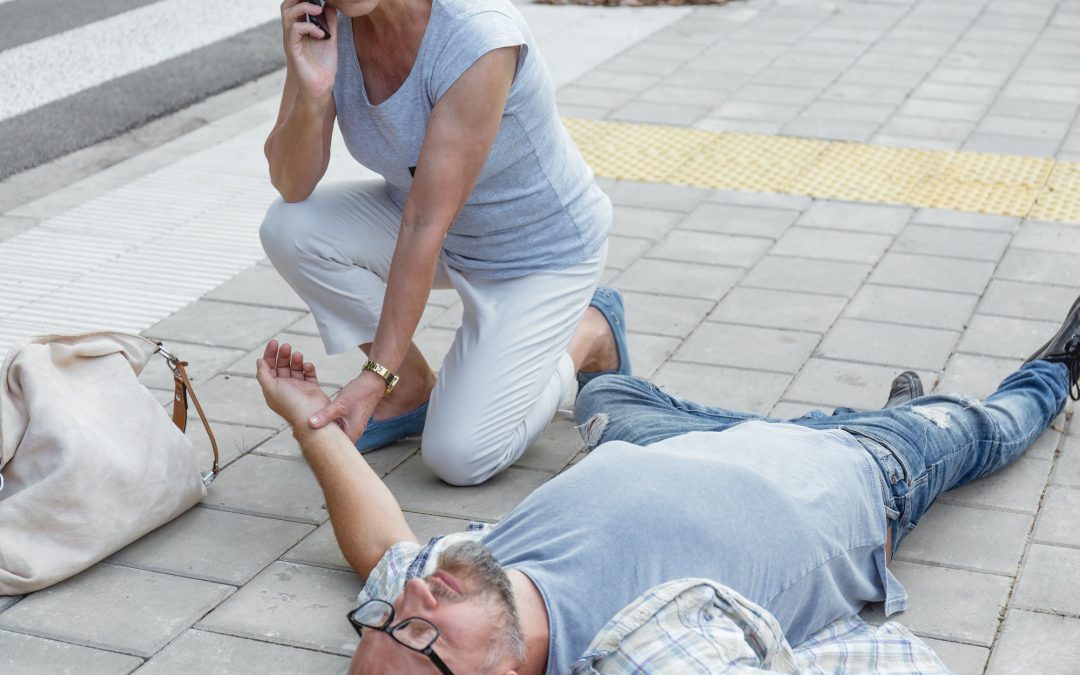High blood pressure is a significant risk factor in heart disease – but is it all the same? What is a dangerous blood pressure measurement?
According to the American Heart Association (AHA), there are five categories when it comes to blood pressure readings. These categories are normal, elevated hypertension stage 1, hypertension stage 2, and hypertensive crisis.
Normal levels are self-explanatory, while elevated means you’re at an increased risk of developing high blood pressure. Hypertension stages 1 and 2 mean that you have high blood pressure and may need medications to manage the condition.
However, the hypertensive crisis range is the most dangerous blood pressure range and requires medical attention. The following explores the dangers of having a hypertensive crisis and what you should do if you have it.
Hypertensive Crisis: Dangerous Blood Pressure
 When your blood pressure increases quickly and severely to 180/120 mm Hg or greater, you have a hypertensive crisis. If it goes uncontrolled, it can lead to loss of consciousness, vision and kidney damage, stroke, heart attack, and more. You may also experience a severe headache, nosebleeds, shortness of breath, and severe anxiety.
When your blood pressure increases quickly and severely to 180/120 mm Hg or greater, you have a hypertensive crisis. If it goes uncontrolled, it can lead to loss of consciousness, vision and kidney damage, stroke, heart attack, and more. You may also experience a severe headache, nosebleeds, shortness of breath, and severe anxiety.
If you have a hypertensive crisis, it can either be a hypertensive urgency or a hypertensive emergency. However, both of these require immediate medical attention to determine the appropriate course of action.
Hypertensive Urgency
When measuring your blood pressure, wait about five minutes after your first reading and measure it again. If your second reading is still 180/120 or greater but you have no symptoms of target organ damage, you have a hypertensive urgency.
Signs of target organ damage include shortness of breath, chest pain, back pain, and vision changes. Moreover, they can also include numbness/weakness and difficulty speaking.
Let your healthcare provider know immediately of your condition and they can determine if you have hypertensive urgency or not. If they determine you have it, then hospitalization is rarely needed and you may just have to adjust your medication.
Hypertensive Emergency
Conversely, if you experience any of the symptoms listed above and 180/120+ readings, you are having a hypertensive emergency. In this scenario, you could have organ damage and need to call 911 immediately.
To avoid this, it’s important that you know whether you have high blood pressure or not so you can treat it accordingly. Keep track of your measurements and have this information on hand just in case you have a hypertensive crisis.
The Outlook
 Out of all the hypertension stages, a hypertensive crisis is the most dangerous and can be fatal if untreated. However, by making healthy lifestyle changes, you significantly decrease the chance of ever having to experience it.
Out of all the hypertension stages, a hypertensive crisis is the most dangerous and can be fatal if untreated. However, by making healthy lifestyle changes, you significantly decrease the chance of ever having to experience it.
In addition to regular exercise and eating healthily, you can take daily supplements like L-arginine Plus to promote your heart health. Its ingredients work to promote your circulation, blood flow, energy levels, and more. Try L-arginine Plus along with other healthy changes to give your blood pressure health the support it needs.

